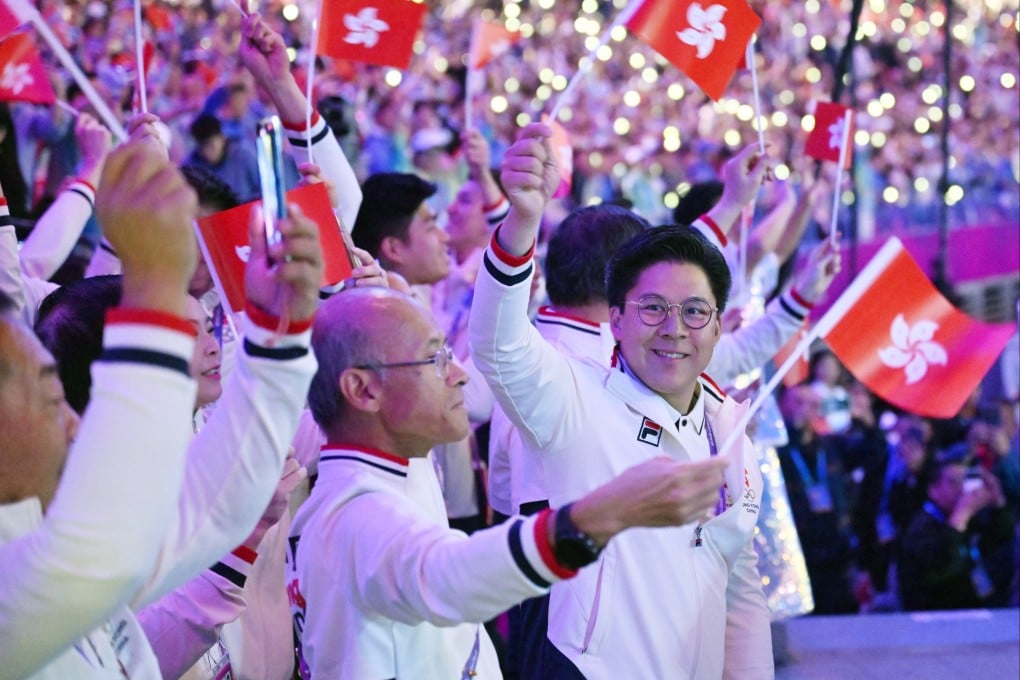Asian Games 2023: curtain falls on triumphant fortnight for hosts China – and Hong Kong
- Chinese Premier Li Qiang watches on as Olympic Council of Asia chief hails Hangzhou event an ‘unprecedented success’
- Bronze medallist Wong Hok-him carries Hong Kong flag into closing ceremony

Chinese Premier Li Qiang helped bring the Asian Games in Hangzhou to a close on Sunday, as thousands of spectators, athletes and volunteers celebrated two emotion-filled weeks of sporting endeavour.
A ceremony once again bursting with colour, and marrying technology with human performance, saluted not only those who had competed on the field and track, in the ring and on the water, but also the host city and Nagoya, Japan, which will come next.
The giant torch bearer from the opening ceremony was back, too, helping to douse the flame, and equally large representations of archers, cyclists, flowers and a digital turf of more than 40,000 illuminated spots provided a visually impressive reminder of the technology behind the Games.
Raja Randhir Singh, the acting president of the Olympic Council of Asia, declared the whole event an “unprecedented success”, and said the council “would never forget” what a perfect host Hangzhou had been.
“The power of sport and the power of the Asian Games is to unite us all in life,” he said. “I would like to thank the Chinese government and the people of Hangzhou for everything you have done.”

It was a resounding triumph for the hosts in all aspects. China dominated the largest Asiad ever, winning an incredible 201 golds, 111 silver and 71 bronze, all while making a stunning return to staging world-class events after the end of the coronavirus pandemic.